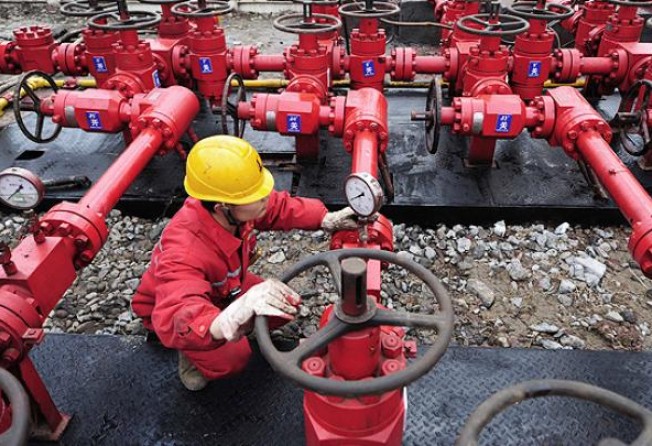Beijing's shale gas targets 'unrealistic' say experts
Experts say that price controls put off experienced operators who risk losing money

The mainland, consuming energy at the fastest pace among major economies, has set ambitious targets to exploit its reservoirs of shale gas.
However, experts say, Beijing will fail to meet those targets.
The mainland produces no commercial quantities of shale gas, yet it has set a target of 80 billion cubic metres (bcm) by 2020, or 23 per cent of total expected demand. Output in 2020 is likely to be 18 bcm, the average estimate of seven analysts surveyed by Bloomberg. That is more pessimistic than a year ago, when the forecast was 23 bcm.
Chris Faulkner, chief executive of the Texas-based shale driller Breitling Oil and Gas, which is in talks in China, said: "China's production targets are not realistic. The only way China is going to be able to meet its output goals is for the government to pour money into exploration and development and ease up on the price controls."
By dictating fuel prices in a centrally controlled economy, Beijing has discouraged investment in shale, because drillers risk losing money. China National Petroleum Corp and China Petrochemical Corp, the two largest gas producers, won no exploration blocks in the last auction, while companies with no gas-drilling experience did.
Missing targets to develop the world's biggest reserves of shale means the mainland's imports from foreign gas markets will be greater than anticipated.
Already, the mainland is spending US$17 billion a year on imports of natural gas, mostly in the form of liquefied natural gas (LNG).
It will open a record number of LNG receiving terminals this year, a boon for more than US$100 billion of projects being built by companies such as Exxon Mobil and Chevron in Australia and Papua New Guinea.
The lack of enthusiasm for shale was evident in December at the government's latest and biggest auction of blocks of land containing natural gas trapped in shale rock. Coal miners and provincial government investment firms with no experience of shale drilling were among the winning bidders. The bids by the big two gas producers and China National Offshore Oil Corp, the largest offshore oil producer, failed.
Awarding shale gas prospects to inexperienced companies in the second auction, and government price controls on natural gas, is likely to ensure imports continue to rise.
The mainland imported LNG worth US$8.3 billion last year, up 41 per cent from 2011. Piped gas comes mainly from Turkmenistan.